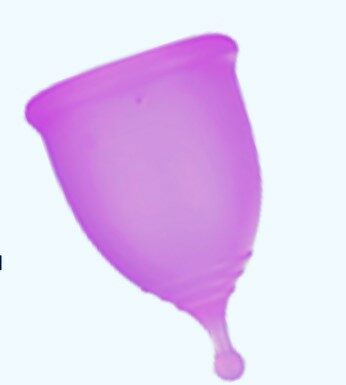A lack of access to hygiene products for females remains a major problem in developing nations, where the impact of disposable sanitary products presents significant environmental challenges.
Individual females use between five to 10 000 pads or tampons during their menstrual lifeline, and worldwide 17-billion pads and tampons are sold annually. These sanitary towels are used once and end up filling up waste sites around the world.
According to studies by Global Citizen, non-compostable period products can take up to 800 years to decompose.
It is for this reason that the Cuplings Foundation intends to transform the lives of 25 000 young women this year through the Foundation Christmas Challenge. The foundation is raising funds to particularly provide young women in South Africa and Botswana with reusable cups.
The goal is to reach R7-million to fund its distribution of 25 000 reusable soft silicone menstrual cups that collect rather than absorb menstrual blood.
Cuplings Foundation managing director and co-founder Farah Abdulla shared: “Each cup has a lifespan of 10 years and eliminates the dependency that younger women and girls have on feminine hygiene products.”
This, she said, is of particular benefit to less fortunate individuals who are dependent on various “pad programmes” that distribute disposable products to communities, sometimes inconsistently.
Abdulla added: “It’s washable, easily wearable and saves thousands of rands for users who presently purchase tampons or pads every month. The value to people who cannot afford to buy hygiene products is immense.”
Abdulla said it is estimated that more than 2.5-million South African girls miss a week of school every month due to their period. “This could add up to two years of education lost when adding up time lost over an average scholastic career.”
And a lack of access to sanitary products is becoming a greater challenge as socioeconomic conditions continue to add pressure.
“Most women who live in villages, impoverished areas and shelters cannot afford to buy sanitary products even when they are made available in their local stores. Instead, they are forced to use clothes, tissues, leaves and other unsanitary methods to deal with their monthly period.
“Cognisance of the damage that these products can do to the environment and the negative impact that not having access to feminine hygiene products can have on various life stages of a women, particularly young women, should make women’s period wellness at the top of socio-environmental agendas worldwide.”
Silicone menstrual kits are biodegradable.
Follow @SundayWorldZA on Twitter and @sundayworldza on Instagram, or like our Facebook Page, Sunday World, by clicking here for the latest breaking news in South Africa. To Subscribe to Sunday World, click here.



